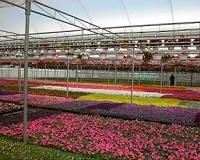 |
Brussels (AFP) Feb 4, 2011 European leaders launched Friday a trillion-euro bid to slash dependency on Middle East oil and Russian gas, clearing the way to place nuclear power at the centre of 21st century needs. At a summit shaken by instability over Egypt's popular revolt and soaring oil prices, the European Union moved to reclaim control over energy supply for the rest of the century with reforms designed to unlock private investment. The EU is the world's largest regional energy market -- 500 million people and 20 million companies. Governments committed to a broad sweep of market reforms, linking national and regional electricity grids and gas pipelines by 2014 to allow power to circulate freely and cheaply, from those who produce it and have surpluses to those who don't and need it. "No EU member state should remain isolated from the European gas and electricity networks after 2015 or see its energy security jeopardised by lack of the appropriate connections," read summit conclusions whose adoption was announced by EU president Herman Van Rompuy on Twitter. "Beyond the management of today's crisis, we're also laying the ground for a sustainable and job-creating growth," Van Rompuy tweeted. Island states Cyprus and Malta, as well as Baltic countries whose infrastructure remains tied to the former Soviet Union, feared their needs may be considered too insignificant for the big energy players to invest in costly transmission networks. But the EU agreed that pooled public money could underpin completion of this so-called 'supergrid' -- although ballpark sums will not be produced until the summer. Initial European Commission estimates suggested that some 2.5 billion euros ($3.4 billion) could be diverted from unspent EU budgets. While one EU diplomat said it was "doubtful" that Britain would back such an approach, Prime Minister David Cameron was comfortable with allowing "some limited public finance to leverage private funding," as the summit conclusions specified, provided it comes from cuts elsewhere in the EU budget. The network development cost over the remainder of the decade is tipped to exceed 200 billion euros. The other big change, at the instigation of France but firmly backed by the government in London, was to reposition domestically-produced nuclear energy at the heart of the bloc's long-term suppplies. In a carefully-worded shift in emphasis, alongside investment in renewable energy technologies, EU states will also promote "safe and sustainable low-carbon technologies" -- this including nuclear -- under climate action goals. This came under attack from ecologists and Poul Nyrup Rasmussen, the head of the Party of European Socialists, as: "Old leaders, with old ideas, simply proposing old energy methods for Europe's future." Brussels-based NGO Energy Strategy Center also saw a missed opportunity given a "significant shift currently underway in the climate and energy debate." It pointed out that, yet again, "China is rapidly becoming a global leader in the technologies of a resource efficient, low-carbon economy." France maintains it is not trying surreptitiously to reclassify nuclear alongside wind, wave, solar or biomass energy production as Europe tries to meet three-pronged commitments to combat global warming by 2020. These are to reduce carbon dioxide emissions by 20 percent compared to 1990 levels, to raise renewables production to 20 percent of consumption and to make energy efficiency savings of 20 percent. However, nothing is set in stone after 2020 -- and the political mood now, amid greater questioning of scientific evidence, is for a more substantial use of the nuclear alternative. "Nuclear is not a renewable source," said a senior official under commission head Jose Manuel Barroso of post-2050 guidelines, but "the make-up of national energy mixes is a matter of national choice." The volume of gas used to generate electricity requirements in the EU has trebled over the past 15 years, with some three quarters of all gas imported into the bloc between now and 2020 coming from Russia, Algeria and non-EU Norway -- ensuring a close link to the price of oil. To that end, the EU must also develop "a reliable, transparent and rules-based partnership with Russia," leaders also concluded.
Share This Article With Planet Earth
Related Links
 Neiker-Tecnalia Creates Air-Conditioned Greenhouse With Alternative Energies
Neiker-Tecnalia Creates Air-Conditioned Greenhouse With Alternative EnergiesBarcelona, Spain (SPX) Feb 03, 2011 Neiker-Tecnalia (The Basque Institute for Agricultural Research and Development) has created an air-conditioned greenhouse using alternative energies that enable the reduction of energy costs, improvements in energy efficiency and an increase in crop yields. The novel system has a biomass boiler and thermodynamic solar panels, which reach an optimum temperature for the crop without using f ... read more |
|
| The content herein, unless otherwise known to be public domain, are Copyright 1995-2010 - SpaceDaily. AFP and UPI Wire Stories are copyright Agence France-Presse and United Press International. ESA Portal Reports are copyright European Space Agency. All NASA sourced material is public domain. Additional copyrights may apply in whole or part to other bona fide parties. Advertising does not imply endorsement,agreement or approval of any opinions, statements or information provided by SpaceDaily on any Web page published or hosted by SpaceDaily. Privacy Statement |